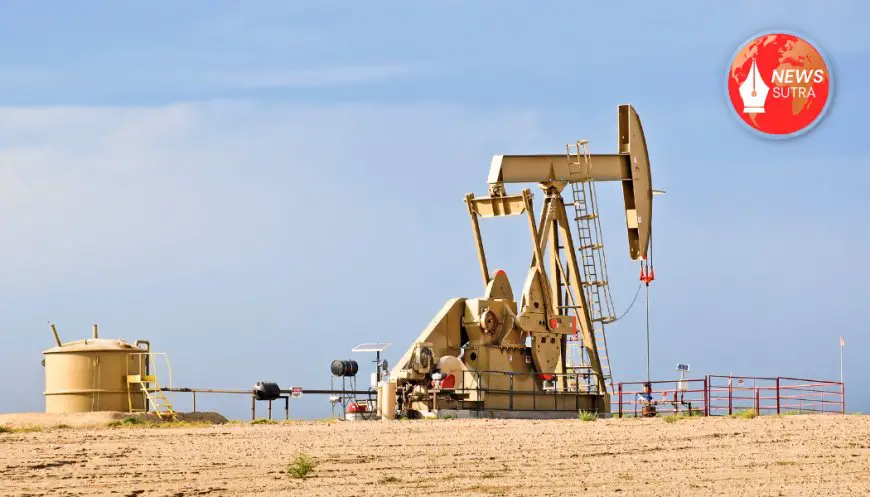Oil Prices Soar as Israeli Strikes on Iran Unsettle Global Markets
Oil prices surge after Israeli strikes on Iran, triggering global market volatility and inflation concerns. Read expert analysis and market forecasts.

By Ronald Kapper
Published on: June 14, 2025
Summary:
Global oil prices surged dramatically following Israeli airstrikes on Iranian military infrastructure, triggering volatility in financial markets and reigniting fears of a wider conflict in the Middle East. Analysts warn of prolonged energy market disruption if tensions escalate further.
Oil Markets React Sharply to Israeli-Iran Tensions
Oil prices spiked overnight as news broke of Israeli military strikes targeting key Iranian facilities. Brent crude futures rose by nearly 5%, breaching the $91 per barrel mark for the first time since late 2023. Meanwhile, West Texas Intermediate (WTI) jumped to over $87, fueled by concerns of supply disruptions and broader regional instability.
The attacks reportedly targeted missile storage units and strategic radar sites near Tehran and Isfahan. In response, Iran's Revolutionary Guard issued a stern warning, heightening fears of retaliation that could threaten vital oil transit routes, particularly the Strait of Hormuz, a passage that handles nearly 20% of global oil shipments.
Global Markets Hit by Renewed Geopolitical Risk
Stock markets worldwide reacted swiftly. The MSCI All-Country World Index dropped 1.3% in early trading, while Asian indices bore the brunt of investor jitters. Japan’s Nikkei 225 and Hong Kong’s Hang Seng both slid more than 2%, mirroring declines in European and U.S. futures.
In an interview with Reuters, commodities strategist Warren Patterson of ING warned:
“If the conflict expands or persists, we could see oil remain well above $90 for the foreseeable future, with profound implications for inflation and central bank policy.”
Energy Security Concerns Amplified
The latest events come amid an already strained global energy environment. With OPEC+ maintaining production cuts and demand recovering steadily across Asia, any disruption in the Middle East could exacerbate supply constraints.
Energy economist Helima Croft, from RBC Capital Markets, noted in a detailed analysis that Iran's current output of 3.2 million barrels per day could face major setbacks if conflict spreads to oil infrastructure. This would not only impact global oil supplies but also heighten political pressure on Western governments to tap into strategic petroleum reserves, much like in previous crises.
Read more in-depth coverage by Energy Intelligence on the vulnerabilities of global supply chains in conflict zones.
Impact on Inflation and Central Banks
With inflation showing signs of easing globally, a sustained increase in oil prices may complicate monetary policy decisions. The U.S. Federal Reserve, the European Central Bank (ECB), and the Reserve Bank of India (RBI) may now face renewed pressure to delay rate cuts, fearing that surging energy costs could reignite consumer price hikes.
According to an updated forecast from Bloomberg Economics, a sustained oil price at or above $90 could add 0.4 to 0.6 percentage points to annual inflation across major developed economies.
What This Means for India and Asia
India, which imports over 85% of its crude oil, is particularly vulnerable. According to The Economic Times, higher oil prices will directly impact the country’s current account deficit, exert pressure on the rupee, and push transportation and manufacturing costs upward.
Asian countries with high energy dependence—such as Japan, South Korea, and the Philippines—are likely to witness inflationary shocks, higher energy subsidies, and volatility in forex markets.
Strategic and Political Fallout
Diplomats across Europe and the U.S. are calling for de-escalation. The United Nations Security Council is expected to hold an emergency session, while backchannel diplomacy through Qatar and Turkey is reportedly underway.
For the Biden administration, this development could not come at a worse time. With a tight election race and domestic energy prices likely to rise, there’s growing bipartisan pressure for a recalibration of the U.S. position in the Middle East.
More insights are available at Council on Foreign Relations for those interested in how the situation may evolve diplomatically and strategically.
What to Watch Next
-
Iran’s military response or retaliatory actions via proxy groups in Lebanon, Syria, or Iraq
-
Potential U.S. or NATO involvement if the conflict spills across borders
-
Energy market interventions, such as SPR releases or diplomatic negotiations to stabilize oil flows
-
China and Russia’s stance, as both nations maintain close ties with Iran
As global markets attempt to absorb the shock, businesses and consumers alike may soon feel the aftershocks. Investors are advised to monitor energy sector developments and consider hedging strategies to mitigate risk in the short term.
Conclusion
The Israeli strikes on Iran have jolted energy markets and revived geopolitical tensions that could have far-reaching consequences. From oil price inflation to macroeconomic instability, the stakes are high—and the world watches with bated breath.














